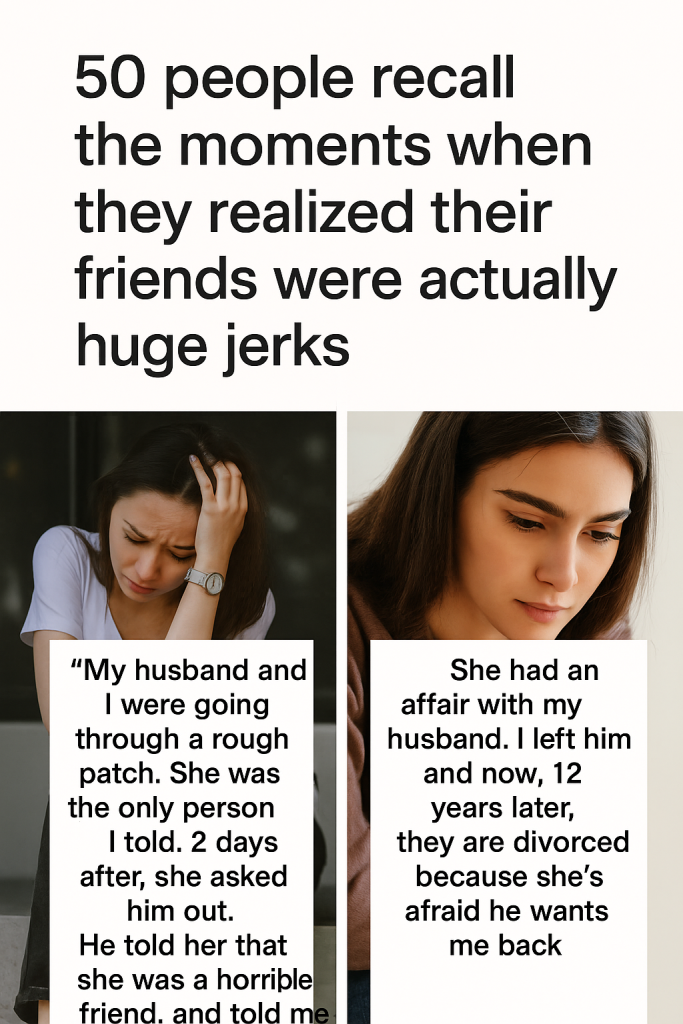Friendship often feels like one of life’s most secure and comforting bonds. But what happens when that trust shatters, revealing a friend’s less-than-ideal character? A recent viral social media thread has captured the attention of thousands by sharing candid accounts from 50 people who vividly recall the exact moments they realized their friends were, in fact, huge jerks.
From subtle betrayals to outright selfishness, these stories span a wide range of scenarios, but many have a striking commonality: a turning point when the friend’s true personality painfully emerged—often when the storyteller needed support the most.
One particularly heartfelt account involved a woman who described going through a difficult patch in her marriage. “My husband and I were going through a rough patch, and she was the person I expected to lean on,” she shared. Instead, her friend took the opportunity to criticize and distance herself, leaving her feeling abandoned and deeply hurt during an already vulnerable time.
Others talked about friends who showed hypocrisy — praising from afar but speaking ill behind their backs, or who selfishly prioritized their own interests when their friends were struggling. Some recalled moments of outright betrayal, like friends sharing private information publicly, or excluding them from important life events without explanation.
Many participants emphasized how these moments often began as small red flags. Perhaps a friend canceled repeatedly, failed to celebrate milestones, or was conspicuously absent during crises. But what turned casual disappointment into clarity was the cumulative effect of these behaviors— unraveling years of trust almost overnight.
The thread’s popularity highlights a universal truth about friendships: not all bonds are meant to last, and recognizing a friend’s toxic behavior is a critical step to preserving one’s mental and emotional wellbeing. “Sometimes it takes a bad moment to see who’s really there for you,” a contributor noted, stressing the importance of setting boundaries and prioritizing genuine connections.
Interestingly, many of the stories also underscore a hopeful message — that realizing a friend’s true nature, while painful, often leads people to form healthier, more authentic relationships. Letting go of toxic friendships can open the door to new, positive connections that foster growth and support.
Social media plays a dual role in this dynamic: serving as a platform for exposure and support while also amplifying the impact of negative behaviors. Threads like this one provide relief to those who have felt isolated in their experiences, reminding them that they are not alone in facing challenging friendships.
In conclusion, friendship, like any close human relationship, demands trust, respect, and kindness. When those elements are absent, it’s important to recognize the signs early and take action to protect one’s wellbeing. The stories shared by these 50 individuals serve as powerful reminders to value ourselves enough to walk away from those who do not treat us with the decency we deserve.
For anyone navigating difficult friendships, these testimonials offer both cautionary tales and encouragement, proving that sometimes, realizing a friend is a “huge jerk” is the first step toward better, brighter relationships.



